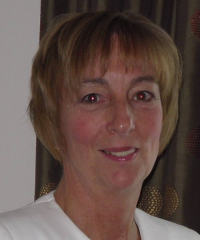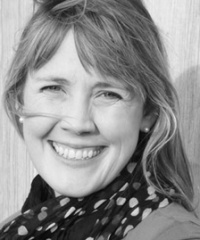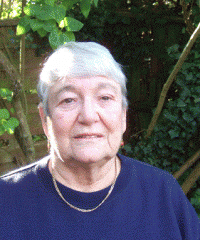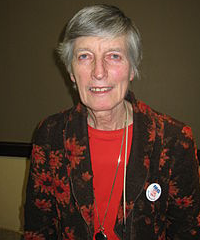
Ann Furedi, bpas: The best abortion law is no abortion law at all
Ann Furedi, Chief Executive of British Pregnancy Advisory Service,
It would take the hardest of hearts not to welcome Monday’s High Court judgement in Northern Ireland, which has opened the door for women pregnant as a result of rape or incest, or with a fetus affected by a fatal fetal abnormality, to access abortion.
Until now, under a nineteenth-century law that prohibits abortion, medical teams could be jailed for life for carrying out abortions even in these extreme circumstances. Unlike the rest of the UK, the Abortion Act 1967 has never applied to Northern Ireland, and since devolution Stormont has steadfastly rejected any suggestion that the law should be changed. Consequently, abortion is only permitted if the woman’s life is directly threatened, or if she would suffer serious and long-term damage to her health.
Mr Justice Horner may have changed this by ruling that the ban was in breach of human-rights law, and should be changed as it is ‘unlikely to be grasped by the legislature in the foreseeable future’. Still, it is not over yet. Following suggestions that the attorney general may appeal the ruling, and in light of Stormont’s previous intransigence, Horner has suggested that a referendum may be required to enact his conclusions.
A referendum on abortion in Northern Ireland could result in some interesting challenges for local politicians. In Northern Ireland, as in the Irish Republic, hundreds of women end unwanted pregnancies already. Either they travel to England or other European countries, where they must pay for treatment, or, increasingly, they obtain medication on the web, as well as through friends or self-help networks, to induce an early miscarriage at home. Neither of these options is ideal. Travel is expensive and self-treatment carries risks – medicines bought online are not always what you think they are. What’s more, when women try to go abroad, customs officials try to intercept them. However these methods have resulted in a significant change to the way abortion is understood: it is more normalised and openly talked about than ever.
This ruling is but a tiny step towards the kind of legal framework for abortion that women in Northern Ireland, as well as the rest of the UK and the Irish Republic, need – a framework where women decide whether abortion is right for them morally, and doctors decide how best to offer it safely. Politicians have one job to do where abortion is concerned – and that is to extract themselves and their laws from the private decisions of women.
But what’s most encouraging about this ruling is that autonomy was central to it. Horner ruled that the Northern Ireland abortion ban contravenes Article 8 of the European Convention on Human Rights – specifically the right to respect for one’s ‘private and family life’ – and referred to case law that states that private life is ‘a broad concept encompassing, among other things, the right to personal autonomy and personal development’.
The right to personal autonomy and personal development needs to be at the forefront of the discussion of abortion law as we move towards legal reviews across the UK and Ireland. The question at the front of politicians’ minds should be: why should abortion be contained in the criminal law at all? Why should abortion not simply be decriminalised and subjected to the laws and regulations that govern other comparable clinical procedures?
The autonomy of all pregnant women should be respected – not just those coping with the diagnosis of a fatal fetal abnormality, or enduring a pregnancy resulting from a sex crime.
The best abortion law is no abortion law at all.
Sarah Panzetta

Sarah is a fertility awareness practitioner and a passionate believer that when it comes to reproductive healthcare it is your body, your choice. Sarah works to ensure that women are able to access all the relevant information they need to make informed choices about their method of contraception, and campaigns for women to receive individualised care that responds to their needs and beliefs, rather than a one-size-fits-all approach to contraception. Her Be Fertility Aware blog is an important resource for many women and healthcare professionals interested in fertility and women’s health. Read Sarah’s piece on why fertility awareness should be a routine option here.
Susan Seenan, Infertility Network UK: Access To IVF Shouldn’t Be Determined By Your Postcode
Susan Seenan is Chief Executive at Infertility Network UK and Co-Chair of Fertility Fairness which campaigns for people to have comprehensive and equal access to a full range of appropriate NHS investigations and treatments for infertility
From my own experience, I know how difficult it can be finding out that you can’t conceive, and the agony and heartbreak that brings cuts right to heart of what it means to be human. Being able to reproduce is a basic biological function, but the impact of infertility is not just a physical one. Infertility can have a huge emotional and psychological impact, for men as well as for women, and then finding out that you can’t access the treatment which could help because of your postcode can be devastating. The question which should be asked is ‘would someone benefit from the treatment’ not ‘where do you live’.
And yet across England that is the question being asked of couples who need help to conceive. For far too many people. Their postcode is the primary driver behind whether they can access fertility treatment and it has to change. In Scotland, Wales and N Ireland access to treatment is not perfect, but it is at least equitable. In England, there is a national recommendation from the National Institute for Health and Care Excellence (NICE), backed up by a recent NICE Quality Standard, for eligible couples to receive up to three full cycles of treatment; the reality however is that the Clinical Commissioning Groups are free to decide whether they think fertility treatment is a local priority. Many of the commissioners making these decisions simply do not understand the clinical, or indeed the economic need, to provide fertility treatment and decide to only offer one or two cycles. Even those which offer three cycles place additional restrictive social criteria on couples, effectively denying them access to treatment which they could potentially access if they lived elsewhere. How unfair is it to tell a patient with a diagnosed fertility problem that she can’t access treatment because her partner has a child from a previous relationship when that ‘child’ is 25 and doesn’t even live in the UK? Or to tell another couple whose home address comes under one CCG which funds three cycles that they can’t access treatment because their registered GP a few miles away falls under a CCG which funds no fertility treatment?
I am one of the lucky ones who finally became a mother after struggling with fertility problems. I got the chance to try IVF. I want to see all others in need have the same opportunities. On the wall in my office, I have a quote from a patient pinned up: ‘I can accept failure; everyone fails at something. But what I cannot accept is not trying.’ People deserve the right to try, to access the treatment that can help them become parents. That’s why we need to end this postcode lottery, and ensure that everyone who should be able to access treatment can do so.
Susan Seenan

Susan is a strong believer that NHS fertility treatment should not depend on one’s postcode and campaigns hard for this change through her role as co-chair at Fertility Fairness. Her first hand experience of infertility and treatment makes her a passionate advocate for emotional support and counselling for everyone struggling to conceive. Her role as Chief Executive of the patient charity Infertility Network UK, the only national charity in the UK which supports anyone experiencing fertility issues, enables her to play a leading role in changing the conversation surrounding fertility issues and promote better understanding of the options available. Read Susan’s piece on the need for equitable access to NHS fertility treatments here.
Caitlin Dean, Pregnancy Sickness Support: Women suffering from Hyperemesis Need Compassion – Not Condescension
Caitlin Dean, is the Vice Chair Trustee of Pregnancy Sickness Support and author of two books about Hyperemesis. A registered Nurse, Caitlin also writes the the popular Spewing Mummy blog.
When you think of pregnancy discomforts for most people Morning Sickness springs to mind. We all know about it and expect it and many women look forward to it as a rite of passage and a sign of a healthy pregnancy. Around 80% of pregnant women will get it and while it’s not very nice it’s also not harmful.
However, for some women, symptoms become abnormal early on and morning sickness rapidly becomes a nightmare they never expected. Around 30% of pregnant women will need time off work due to the severity of symptoms. There aren’t many jobs you can do while puking up multiple times a day! This can put huge financial strain on families, looking after other children and paying bills can be compromised.
1-2% of pregnant women will get symptoms which are so severe they are rendered bedbound, suffer dehydration and rapid weight loss. These women have a serious complication of pregnancy called hyperemesis gravidarum (HG). Most women with HG require weeks or even months off work, hospital admission for IV fluid replacement, medication to get symptoms under control and emotional support. The mental health toll can be profound as the traumatic symptoms can last many months, even the duration of the pregnancy and complications of HG can linger for years.
You would think that pregnant women with a serious complication would get expert treatment from compassionate professionals, families would rally and employers would express supportive concern. Yet that is a long way from most women’s experience in the UK today.
Not only do women with HG face a daily battle to control symptoms, stay hydrated and keep food down, but they face a battle to be taken seriously by doctors and midwives, to be given treatment and care. They face discrimination from employers and unhelpful remarks from relatives about pulling themselves together and getting on with it… “you’re only pregnant!”.
And so it’s no wonder that around 10% of these wanted and longed for pregnancies are ended in termination. Fear for the mother’s own health, fear about losing their jobs and home, fear about not being able to care for their other children and doctors perpetuating myths about hypothetical medication risks leave couples feeling like they have no other choice but to end the pregnancy.
But there is another way! There are some doctors across the UK who do treat hyperemesis with the compassion and respect the condition deserves. Who utilise the numerous medications known to be safe for mum and baby in a timely and appropriate manner. Doctors who rehydrate women in ways that least disrupt her work and family so she can maintain the pregnancy without financial hardship. Doctors and midwives who signpost women to the emotional support offered by Pregnancy Sickness Support and to people who can help with employment issues.
These are the doctors we want to see across the UK. In every hospital and GP surgery. This is the care these women and their babies deserve.
It is achievable… It is already being done, now lets roll it out.
Linda Geddes

Linda Geddes is an award-winning journalist and author of Bumpology which separates the myths from the science around pregnancy. Battling against the patronising policing of pregnant women’s bodies, Linda is a strong believer in women’s right to receive accurate, impartial information to enable them to make their own decisions about pregnancy and childbirth. As Linda has stated, ‘women can do without unnecessary guilt, anxiety and doubt – but not without the facts.’
Diane Munday

A true pioneer of change, Diane was a central member of the Abortion Law Reform Association (ALRA) which made the 1967 Abortion Act possible. Having been vice chairman and main spokesperson since 1963 Diane took over as general secretary in 1968. She went on to help found the British Pregnancy Advisory Service (bpas) where she worked for many years defending women’s reproductive rights in the media and with policymakers during a time of significant attacks on abortion care. Diane’s enduring commitment to women’s reproductive autonomy continues to inspire activists and campaigners today. Read Diane’s piece on why we need to decriminalise abortion here.
Ann Furedi, bpas: Why All Women Owe A Debt To David Paintin, A True Champion Of Choice
Ann Furedi is the Chief Executive of bpas, and first met David Paintin when working as a journalist.
All women owe a debt to David Paintin for his work with parliamentarians to achieve a liberal abortion law, and with his profession to increase abortion’s acceptability and promote innovative good practice. He was one of the group from the Abortion Law Reform Association (ALRA) that supported David Steel (now Lord Steel of Aikwood) during the parliamentary debates that resulted in the Abortion Act of 1967.
Often the story of abortion reform is couched in terms of an emerging women’s rights movement battling for sexual liberation but, while it is true that ‘free abortion on demand’ became a central demand of the Women’s Liberation Movement, that was not until the 1970s. The reforms that led to the Abortion Act 1967 were the result of work in earlier times and different ways of thinking by men and women who, like David Paintin, did not see themselves as firebrands or radicals of any description.
Many of the men who worked alongside David were of a very conservative disposition, wishing to end the increasing numbers of abortions provided outside official medical practice and limit its provision to what they saw as proper circumstances. Many of the women, more “blue-stocking” than “bra-burning”, were concerned by the inability of poverty-stricken women to raise their children responsibly.
The abortion reform movement is located by David in the traditions of public health and social responsibility, an increasing orientation of the clinical profession towards a concern with general well-being rather than simply physical infirmity, and, over recent decades, in reliance on ‘evidence’ and best practice.
David’s recently published memoirs on the struggle for abortion law reform have great value to those of us who want to understand the context in which the current law and regulations have been constructed. To influence the future we need to understand why past was as it was, and why the present is as it is. Aspects of the law that seem irrational to us today, such as the requirement for two doctors to approve a termination, were almost always introduced with specific intent. But it is important that we now question if the intentions of the sixties remain valid half a century on.
David always describes his contribution to abortion law reform as ‘modest’ – which is itself an especially modest assertion. Long before the term “reproductive choice” had even entered the lexicon, David was its Champion, and we are all grateful for his lasting contribution to abortion rights in this country.
Wendy Savage

Professor Wendy Savage has devoted her life to women’s health. She has been the co-ordinator and Press officer for Doctors for a Woman’s Choice on Abortion since 1976 and was the first female consultant appointed in obstetrics and gynaecology at the London Hospital and has always been a passionate advocate for her patients. Wendy is a huge inspiration to the next generation of abortion doctors and is tireless in her work to ensure women get access to safe, legal abortion.
Sexpression: UK

An influential and passionate network of student-led projects based at universities within the UK who are committed to enabling young people to make informed decisions about their sexual health. They are strong advocates for sexual and reproductive rights and run important informal sex and relationship sessions in their local areas. By providing these sessions the students ensure that young people have the skills to access sources of confidential advice, empowering them to make informed choices about their bodies and sexual and reproductive health.
